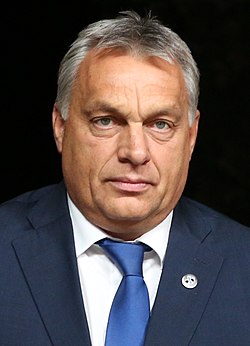 Viktor Orbán current and longest-serving prime minister |
 János Hadik in 1918 |
This list of prime ministers of Hungary lists each prime minister in order of term length. This is based on the difference between dates; if counted by number of calendar days all the figures would be one greater.
Contents
Viktor Orbán is the longest serving prime minister with his more than 19 years. János Hadik served as prime minister for less than one day in 1918.
Those prime ministers who served only in non official status are placed at the bottom row with an en-dash (–).